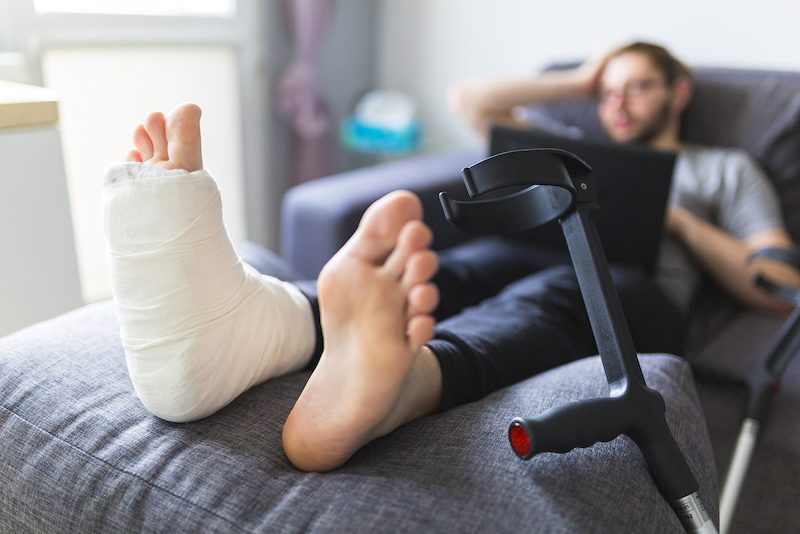Miami Personal Injury Settlements: Myths vs. Reality
September 8, 2022 | Sagi Shaked | Personal Injury

Personal injury settlements are the most common way to resolve personal injury claims. The parties negotiate a fair settlement amount. Neither side may receive the desired outcome, but the settlement is reasonable and avoids a lengthy personal injury lawsuit.
Many factors could impact the outcome of your personal injury case. Those factors include, but are not limited to:
- Traumatic and catastrophic injuries
- Disputes regarding causation, fault, and liability
- Allegations of contributory fault
- The availability of insurance coverage
- The parties involved in the case
- Lack of prompt medical treatment
- The willingness of the insurance company to negotiate a fair settlement
Unfortunately, there are many myths about personal injury settlements. Our lawyers discuss some myths and the reality you need to know as you pursue a personal injury case.
Myth: All Personal Injury Claims Result in Large Payouts
Many people believe accidents and personal injury result in huge settlements. While some personal injury cases result in large settlement amounts, that is not true in all cases. Instead, the facts and circumstances of the case determine the value of damages.
What makes a fair settlement?
A fair settlement compensates you for your damages. The degree of damages for a personal injury depends on many factors, including the severity of your injuries.
Most personal injury claims include compensation for economic and non-economic damages. In addition, some individuals could be entitled to punitive damages.
Examples of damages you could receive include:
- The cost of medical treatment, personal care, rehabilitation, and nursing care
- The loss of income and benefits, including future lost wages and a decrease in earning capacity
- Permanent impairments, disabilities, scarring, and disfigurement
- Emotional distress and mental anguish
- Out-of-pocket expenses and costs
- Physical pain and suffering
- Loss of enjoyment of life and a decrease in your quality of life
Punitive damages are only paid in a small number of cases. Insurance companies are unlikely to pay punitive damages as part of a settlement agreement. You would need to file a lawsuit and prove your case in court before you can receive punitive damages.
Myth: Florida Never Caps Damages
Some states cap or limit the amount of damages a party can receive for a personal injury claim. However, Florida does not cap economic damages (the monetary losses you incur). Therefore, you can receive full reimbursement for all economic damages.
Florida did have a cap on non-economic damages in medical malpractice cases. However, Florida courts ruled those caps were unconstitutional. Therefore, you can receive unlimited compensation for pain and suffering damages.
Florida laws cap punitive damages in personal injury cases. Punitive damages “punish” the defendant for specific types of behavior. The cap for punitive damages is three times the amount of compensatory damages (i.e., economic and non-economic damages) or $500,000.
Myth: You Cannot Sue Another Driver for a Car Accident in Florida
Florida is a no-fault state for car accident cases. The state requires drivers to have a minimum of $10,000 in Personal Injury Protection (PIP) coverage.
Regardless of fault, PIP coverage pays medical bills and loss of income. However, PIP benefits are limited. They also do not compensate you for pain and suffering damages.
Even though Florida is a no-fault state, there are exceptions to the rule that you cannot sue the at-fault driver. You can pursue a legal claim against the driver who caused the car accident if you sustain severe injuries.
However, you have the burden of proving liability by asserting the other party’s negligence. Negligence claims require you to prove:
- The other motorist owed you a duty of care to operate the vehicle safely to avoid accidents and injuries
- The other motorist breached the duty of care through their actions or omissions
- The breach of duty was the direct and proximate cause of the accident and your injuries
- You sustained damages because of the motorist’s breach of duty
You also have the burden of proving the extent of your injuries and damages. You must have evidence proving the value of your damages to recover a fair settlement for your car accident claim.
Myth: If You Are Partially to Blame, You Cannot Recover Money for a Personal Injury Claim
A few states bar an injured party from seeking damages if they have any blame for an accident. Only four states and the District of Columbia use this harsh form of comparative negligence. Other states place a 50% or 51% bar on recovering damages if the victim is partially at-fault.
Still yet, other states such as Florida adopted a pure comparative negligence standard. Therefore, you could be 99% at fault for the cause of your injury and still recover 1% of your damages.
Insurance companies often use contributory fault allegations to lower the value of personal injury claims. Therefore, you may want to avoid speaking with an insurance adjuster until you consult a Miami personal injury attorney. Insurance adjusters are trained at taking statements and twisting them to misconstrue the facts of the case to support their allegations of contributory fault.
Myth: Hiring a Miami Personal Injury Lower Decreases the Amount of Money You Receive
Claims adjusters routinely use this argument. They might tell you that if you hire a lawyer, the lawyer takes a large portion of your money. The adjuster may tell you that you can handle your claim just as well without a lawyer to keep that money for yourself.
It is true that not all personal injury cases require hiring a lawyer. However, the claims adjuster is not a trusted source of information to make that determination.
The adjuster protects the best interests of the insurance company. In other words, the claims adjuster pays as little as possible to resolve your claim. As a result, they undervalue your damages to lower the settlement amount.
The insurance company has a team of professionals protecting its best interest. You deserve the same. The best way to know if you need a personal injury lawyer is to talk to one during a free case evaluation.
Personal injury lawyers assist you by investigating the cause of your injury, identifying all responsible parties, gathering evidence to prove liability, and correctly valuing your damages. Hiring an accident attorney can increase the amount of money you receive for your personal injury case.
Personal injury attorneys work on a contingency fee basis. Therefore, hiring a lawyer does not cost you anything upfront.
If the lawyer does not recover money for your claim, you do not pay any attorneys’ fees. The attorney fee is based on a percentage of the settlement amount. Therefore, the lawyer is strongly incentivized to recover maximum compensation for your claim.
A Miami personal injury attorney reviews your case during a free consultation. You receive a free evaluation to help you decide how to proceed with your case.
Contact Our Personal Injury Law Firm in Miami, FL
If you’ve been injured in an accident in Miami or Aventura, FL, and need legal help, contact our personal injury lawyers at Shaked Law Personal Injury Lawyers to schedule a free consultation.
Shaked Law Personal Injury Lawyers
20900 NE 30th Ave Suite 715 Aventura, FL 33180
(305) 937-0191
Open 24 hours

